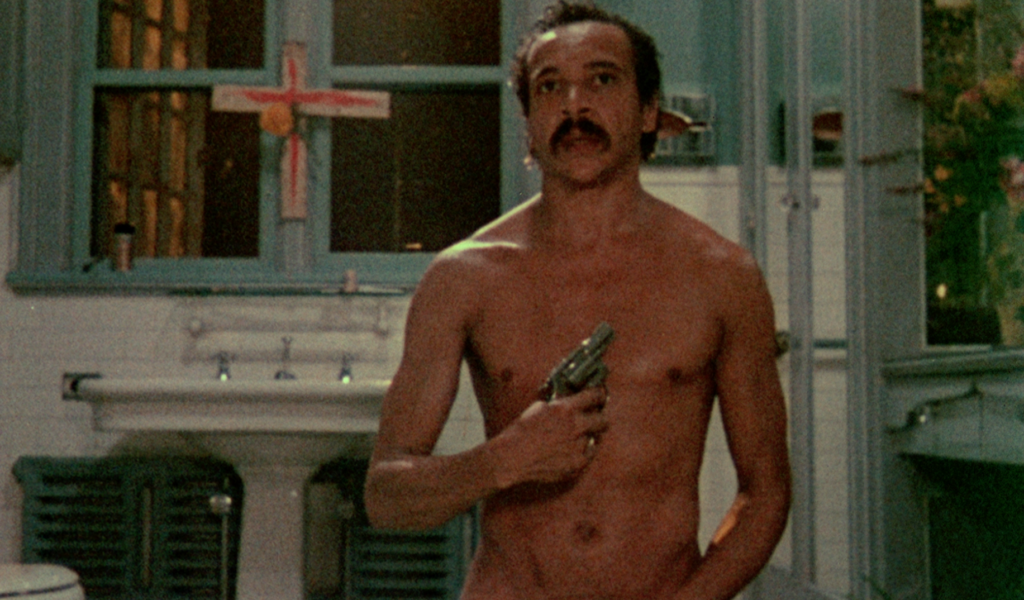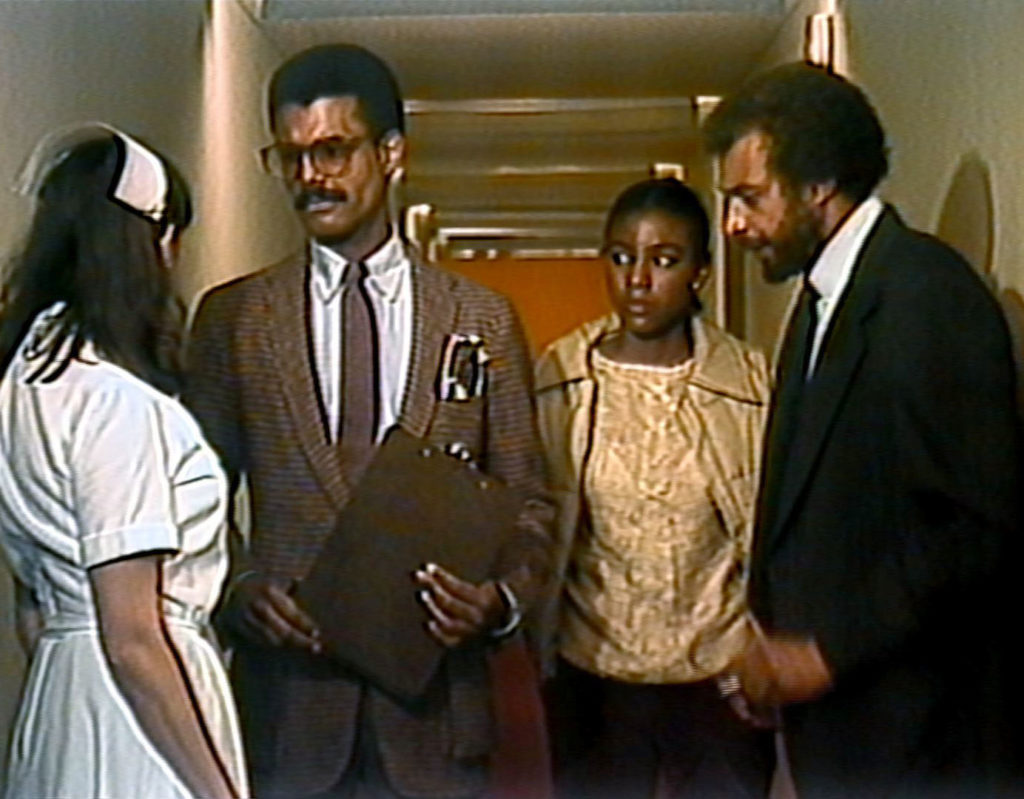
Program Review: “Double Bill: Bill Gunn”
Featuring Ganja & Hess (1973, US, 110 minutes) and Personal Problems (1980, US, 165 minutes).
Available with subscription at MUBI.com. Both films also on Blu-ray and DVD now, and on criterionchannel.com in August.
The filmmaking career of author/playwright/actor Bill Gunn is often spoken of in tragic terms, and understandably so. His first film, Stop! (1970), was buried by Warner Bros. and has yet to receive an official release. Just a few years later, vampire film Ganja & Hess was reedited without his permission following poor box office returns and subsequently rereleased as Blood Couple—for years, that was the only version of the film available. And though his last film Personal Problems brought together many of the most prominent Black artists of its era, including writers Ishmael Reed and Steve Cannon (who both produced), it did not receive wide attention until its restoration and theatrical rerelease in 2018.
But considering the American film industry’s known aversion to risk, especially when it comes to the work of a queer Black man, it’s also something of a miracle that these two uncompromising and remarkable films exist at all, and furthermore that they’re now accessible to anyone with an Internet connection. Would a film like Personal Problems, a “meta-soap opera” shot on videotape, have received its theatrical run had it not been sold as a lost masterpiece from the man behind Ganja & Hess? And would Ganja & Hess even have been a marketable reference point had it not just seen its own profile raised when Spike Lee remade it as Da Sweet Blood of Jesus (2014)? Going back even further: Would Ganja & Hess, an arty, expressionistic horror romance that uses vampirism as an allegory for addiction and/or the dangers of Black assimilation—take your pick—have even been funded in the first place had it not been for the emergence of both independent film production and the Blaxploitation subgenre? His successes were hard-fought and bittersweet at best, but in certain ways the stars aligned for Gunn. Many projects from filmmakers just as exciting and visionary never even got the green light.

Since Ganja & Hess and Personal Problems are Gunn’s only directorial works currently available, one gets the inclination to draw connections between them. But part of what unites the films is their respective distinctiveness, and the high ambition of their unique aesthetic projects. Ganja & Hess is a patchwork of charged religious and folkloric imagery, with a sound mix that predates the work of groups like the Black Audio Film Collective in adapting the techniques of early DJs—especially Jamaican dub artists—to a cinematic context. Meanwhile Personal Problems is a two-part, nearly three-hour-long experiment in early video that attempts to utilize tape’s crude, fuzzy visual style toward narrative immersion rather than distanciation.
Which is not to suggest there’s nothing in common between the two works. Both explore Black life in America from a perspective far removed from Hollywood’s usual take on the subject: They grant no emphasis to race relations with white people (as in, say, the contemporaneous films of Sidney Poitier) or to urban poverty/crime (as in Blaxploitation). Taken together, they present a complex portrait of class dynamics within the Black community, whether through wealthy anthropologist Dr. Hess Green’s predatory relationship to the poor or through the quotidian struggles of Personal Problems’ middle-class Brown family, whose lives are affected in small ways by those both above and below their stratum.
In each film Gunn allows his performers the space to work through the peculiar emotions of their characters, often in extended monologues or dialogues that almost feel like method acting exercises (Gunn studied under Mira Rostova, who had previously coached Montgomery Clift). Indeed, the most indelible moments of each film involve the camera trained on the faces of their lead actresses. In Ganja & Hess, Marlene Clark as Ganja—backlit as if in confession—reacts to a startling revelation by recalling a seemingly unrelated anecdote about her mother’s harsh reaction to a childhood snowball fight. And in Personal Problems, Vertamae Smart-Grosvenor as nurse and matriarch Johnnie Mae quietly cries as she listens to her lover (played by Nina Simone’s brother Sam Waymon) sing to her, giving her the attention and care she desperately lacks at home. For all his aesthetic experimentation, it’s clear that Gunn’s art is about people—both the characters he helped create and the talented group of artists with whom he collaborated.
Etan Weisfogel is a film and media critic based in Brooklyn.

